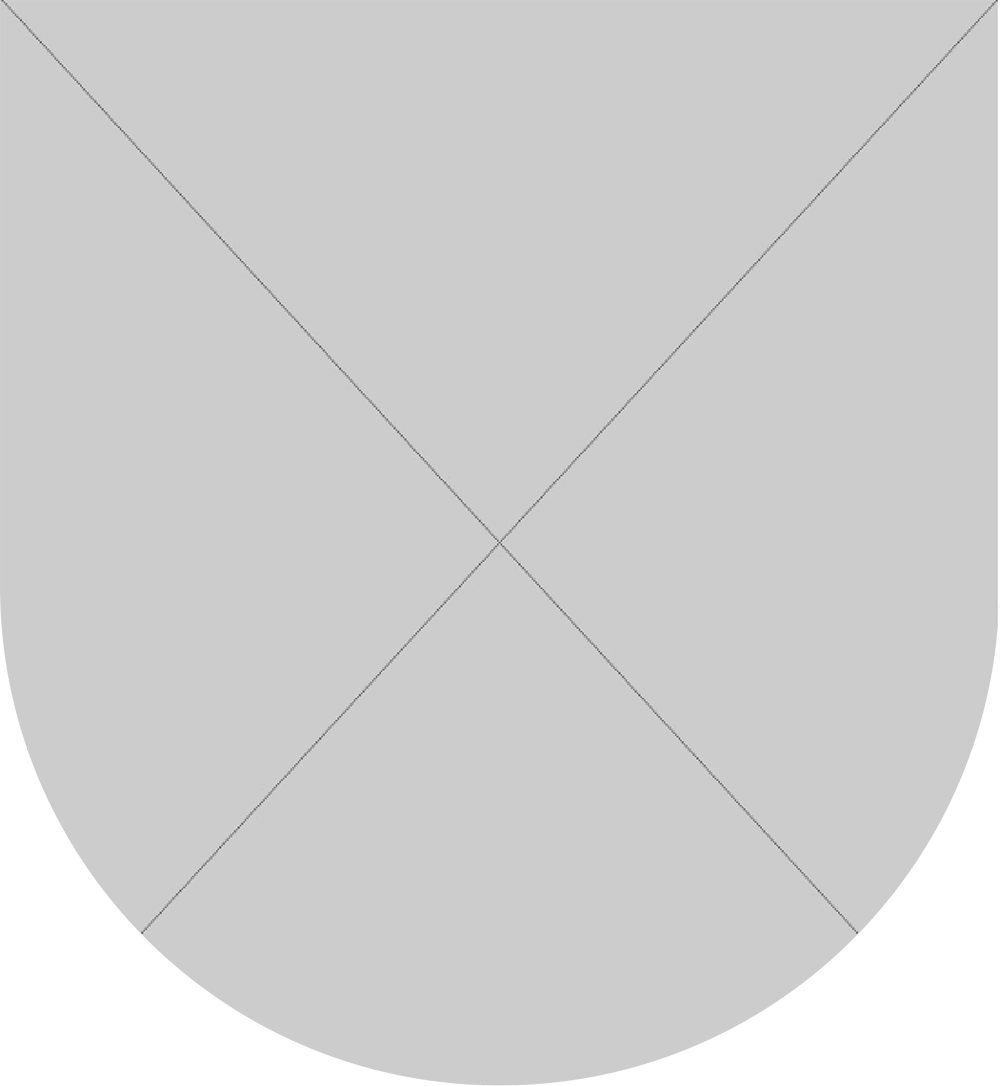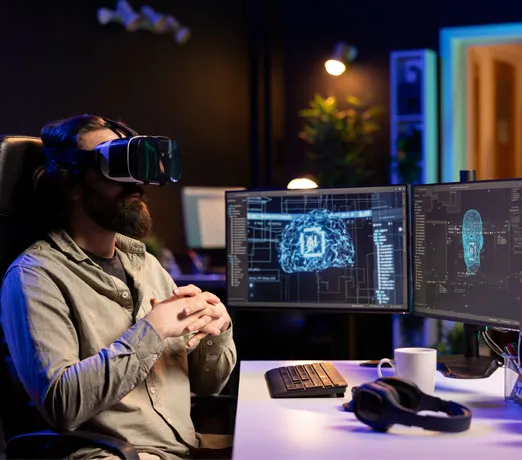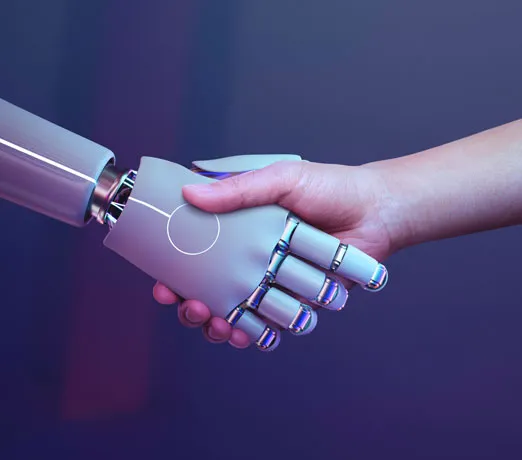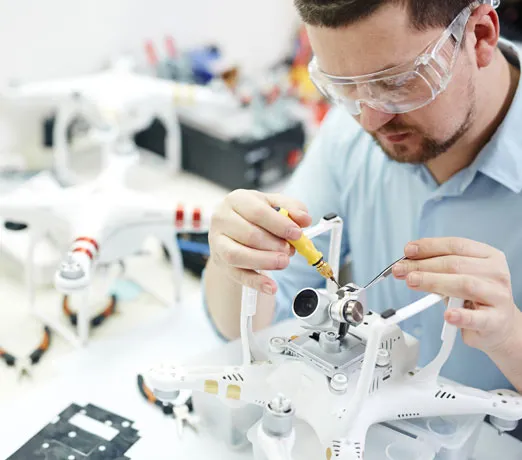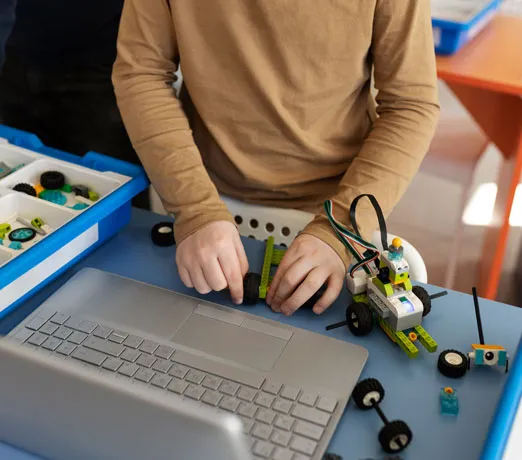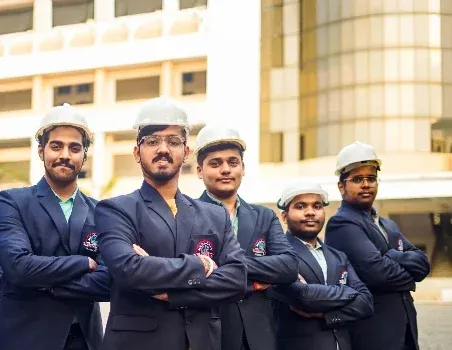PROGRAMS
B.Tech - Robotics and Automation Engineering
-
Faculty Engineering
-
Department Mechanical Engineering
-
Duration 8 Semesters (4 Years)
Eligibility Criteria
12th Passed with: Physics + Mathematics + (TOS)
Third Optional Subject (TOS) in 12th : Chemistry / Computer Science / Electronics/ Information Technology / Biology / Informatics Practices / Biotechnology/ Technical Vocational subject/ Agriculture/ Engineering Graphics/ Business Studies/ Entrepreneurship
Program Overview
B.Tech in Robotics and Automation is a four-year undergraduate program that equips students with the skills and knowledge needed to design, develop, and implement robotic systems and automated solutions.
The program prepares graduates for careers in robotics and automation technology that plays a crucial role in advancing automation technologies and driving innovation across various sectors. Students begin with fundamental topics such as programming, control systems, and mechanical design. They specialise in cutting-edge areas such as artificial intelligence, machine learning, sensor technology, and computer vision. Through hands-on experience with lab work, projects and internships students gain superior technical and problem-solving abilities.
Graduates of the B-tech robotics and automation program can pursue diverse career opportunities, such as robotics engineers, automation engineers, control systems engineers, mechatronics engineers or AI scientists.
Course Curriculum
Programme Educational Objectives (PEOs)
The Program Educational objectives of the Robotics and Automation Engineering undergraduate program are to:
PEO-1
To impart to students with modern science, technical and practical knowledge of robotics and automation engineering subjects.
PEO-2
To enhance analytical skills of students for decision making in complex engineering problems.
PEO-3
To provide opportunity to students for learning towards recent development and future technologies related to robotics and automation engineering.
PEO-4
To prepare Students to take up career in multidisciplinary industries or to pursue higher studies in robotics and interdisciplinary programs.
PEO-4
To create awareness amongst the students towards social, environmental and energy related issues.
Programme Outcomes (POs)
Students of Robotics and Automation Engineering Programme by the time of graduation will develop and demonstrate:
POs-1
An ability to apply knowledge of mathematics, science and engineering for problem Solving in robotics and automation engineering.
POs-2
An ability to understand, formulate and analyze to solve engineering problems.
POs-3
An ability to design and develop a robotic system, component or process to meet desired specifications and requirements within realistic constraints such as economic, environmental, social, political, ethical, health and safety, manufacturability and sustainability.
POs-4
An ability to design and conduct experiments to generate, analyze and interpret data of a robotics and automation system and process.
POs-5
An ability to model and simulate and to use the techniques, skills and modern engineering tools to solve robotics and automation engineering problems.
POs-6
An understanding of legal and social liabilities related to mechanical processes or Product development.
POs-7
An ability to understand the impact of robotics and automation engineering solutions in a global, economic, environmental and societal context.
POs-8
To adopt ethical practices in developing robotics and automation engineering solutions.
POs-9
An ability to function individually as well as in multidisciplinary teams.
POs-10
An ability to establish effective communication with colleagues, technical groups and society.
POs-11
An ability to adapt for changes and innovations in robotics and automation engineering.
POs-12
Ability to engage in life-long learning by adapting knowledge of contemporary issues of robotics and automation engineering.
Programme Specific Outcomes
The Program Specific Outcomes of the Robotics and Automation Engineering undergraduate program are:
PSO-1
The students will be able to implement the knowledge in industrial automation.
PSO-2
The students will be able to develop cost effective and sustainable solution of automation and robotics for industry and society.
PSO-3
The students will be able to implement the robotics and automation knowledge in improving industrial productivity and safety.
Career Path

Alumni
Admissions
Faq's
This course focuses on designing, programming, and controlling robotic systems, as well as automating industrial processes.
Students learn robotic system design, machine learning, sensor integration, control systems, and automation software.
Yes, the course includes practical work with industrial robots, control systems, and automation tools in dedicated labs.
Graduates can work in sectors such as manufacturing automation, robotics development, aerospace, and defense.
The curriculum covers AI applications in robotics, including machine learning algorithms and vision systems for autonomous robots.
Start your journey with Medicap
Contact

Phone
+ 917313111500